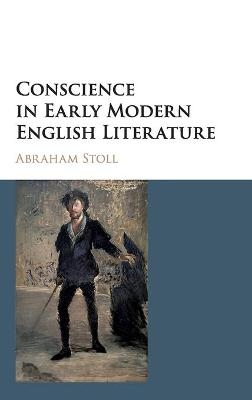
Conscience in Early Modern English Literature
Seiten
2017
Cambridge University Press (Verlag)
978-1-108-41873-7 (ISBN)
Cambridge University Press (Verlag)
978-1-108-41873-7 (ISBN)
This book describes how poetry, theology, and politics intersect in the early modern conscience. Stoll explores how Shakespeare, Spenser, Herbert, and Milton attempt to capture the experience of being in its grip. In the literature of the early modern conscience, Protestant subjectivity evolves toward the political subject of modern liberalism.
Conscience in Early Modern English Literature describes how poetry, theology, and politics intersect in the early modern conscience. In the wake of the Reformation, theologians attempt to understand how the faculty works, poets attempt to capture the experience of being in its grip, and revolutionaries attempt to assert its authority for political action. The result, Abraham Stoll argues, is a dynamic scene of conscience in England, thick with the energies of salvation and subjectivity, and influential in the public sphere of Civil War politics. Stoll explores how Shakespeare, Spenser, Herbert, and Milton stage the inward experience of conscience. He links these poetic scenes to Luther, Calvin, and English Reformation theology. He also demonstrates how they shape the public discourses of conscience in such places as the toleration debates, among Levellers, and in the prose of Hobbes and Milton. In the literature of the early modern conscience, Protestant subjectivity evolves toward the political subject of modern liberalism.
Conscience in Early Modern English Literature describes how poetry, theology, and politics intersect in the early modern conscience. In the wake of the Reformation, theologians attempt to understand how the faculty works, poets attempt to capture the experience of being in its grip, and revolutionaries attempt to assert its authority for political action. The result, Abraham Stoll argues, is a dynamic scene of conscience in England, thick with the energies of salvation and subjectivity, and influential in the public sphere of Civil War politics. Stoll explores how Shakespeare, Spenser, Herbert, and Milton stage the inward experience of conscience. He links these poetic scenes to Luther, Calvin, and English Reformation theology. He also demonstrates how they shape the public discourses of conscience in such places as the toleration debates, among Levellers, and in the prose of Hobbes and Milton. In the literature of the early modern conscience, Protestant subjectivity evolves toward the political subject of modern liberalism.
Abraham Stoll is Professor of English at the University of San Diego. He is editing a new edition of Paradise Lost. He is author of Milton and Monotheism (2009) and has edited the five-volume edition of Edmund Spenser's The Faerie Queene (2006).
Introduction: thus conscience; 1. Destructuring: Aquinas, Luther, Perkins; 2. Spenser's allegorical conscience; 3. Con-science in Macbeth; 4. Casuistry and antinomianism; 5. Public discourses: toleration, revolution, sovereignty; 6. Milton's expansive conscience; Bibliography; Index.
| Erscheinungsdatum | 28.09.2017 |
|---|---|
| Zusatzinfo | Worked examples or Exercises |
| Verlagsort | Cambridge |
| Sprache | englisch |
| Maße | 158 x 235 mm |
| Gewicht | 480 g |
| Themenwelt | Geisteswissenschaften ► Sprach- / Literaturwissenschaft ► Anglistik / Amerikanistik |
| Geisteswissenschaften ► Sprach- / Literaturwissenschaft ► Literaturwissenschaft | |
| ISBN-10 | 1-108-41873-2 / 1108418732 |
| ISBN-13 | 978-1-108-41873-7 / 9781108418737 |
| Zustand | Neuware |
| Haben Sie eine Frage zum Produkt? |
Mehr entdecken
aus dem Bereich
aus dem Bereich
Poetik eines sozialen Urteils
Buch | Hardcover (2023)
De Gruyter (Verlag)
59,95 €
Entzauberung und Faszination des Immergleichen in Literatur und Film
Buch | Softcover (2024)
Springer Fachmedien Wiesbaden GmbH (Verlag)
84,99 €
Buch | Softcover (2024)
belleville (Verlag)
20,00 €


